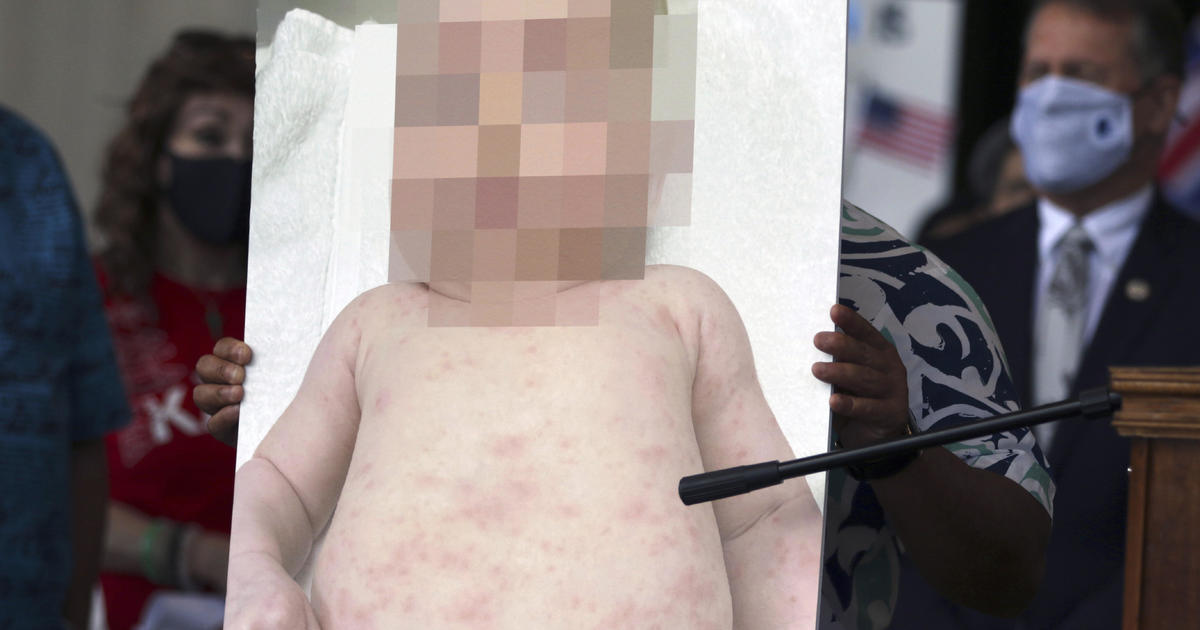Transcript: Neel Kashkari on "Face the Nation," April 12, 2020
The following is a transcript of an interview with Neel Kashkari, the president and CEO of the Federal Reserve Bank of Minneapolis, that aired Sunday, April 12, 2020, on "Face the Nation."
MARGARET BRENNAN: We turn now to Neel Kashkari, president and CEO of the Federal Reserve Bank of Minneapolis. He also led the Treasury Department's 2008 TARP program. He joins us from Minneapolis. Thank you for joining us. Clearly, you know what a crisis is like and how to navigate one. I want to ask you about the jobs crisis right now, because 16 million Americans have filed for unemployment since these restrictions went into place due to the virus. The St. Louis Fed says we could see 47 million Americans losing their jobs. Where is your prediction of a bottom?
FEDERAL RESERVE BANK OF MINNEAPOLIS PRESIDENT NEEL KASHKARI: Well, we just don't know. I've been listening to your program this morning, MARGARET, and we just don't know the path of the virus. That's going to determine how long the shutdown needs to take place and ultimately how many Americans lose their jobs and how quickly we can get them back to work when the economy turns back on. So there are a wide range of estimates of how wide or how high the unemployment rate is going to go, but it's all driven by the virus and how effective we are in the healthcare system is to catching up and controlling it.
MARGARET BRENNAN: So these estimates or predictions of a V-shaped economy, that the economy is just going to turn right back on when people go back to work is overly optimistic?
KASHKARI: I think so. I- I- you know, it'd be wonderful if some new therapy were developed in the next couple of months that people could have confidence to go back to work, that they could get treatment, then potentially we would have a V-shaped recovery. But borrowing some- barring some healthcare miracle like that, it seems like we're gonna have various phases of rolling flare-ups, as we heard from your guest from Washington. Different parts of the economy turning back on, maybe turning back off again. This could be a long, hard road that we have ahead of us until we get to either an effective therapy or a vaccine. It's hard for me to see a V-shaped recovery under that scenario.
MARGARET BRENNAN: Well, it looks like Congress and the administration underestimated the amount of pain small business owners are in. There are predictions that the $350 billion put aside could be exhausted, and that's why Congress is talking about adding another $250 billion. They're fighting about it at least. What will the impact be if Congress doesn't make that package bigger this week?
KASHKARI: Well, I think it's very important. A- a lot of small businesses are saying they want to keep their business together. They want to keep their employees employed, which is really, really important so that we don't have even more job losses. So that's good. The banks are trying to step in, the small businesses are trying to do their part. But we know that the 350 billion dollars is not going to meet the needs across all the small businesses in America. So it will end up being first come first serve, who end up getting the assistance and who's left on the sidelines. I'm optimistic. I think Congress will come together to provide more support to small businesses. But then again, we don't know how- if this support is going to be long enough, because if we need to have different phases of shutdowns for the next several months or until we have a therapy or vaccine, they're going to need more help than that.
MARGARET BRENNAN: Right. And- and the Fed is part of this strategy because as we've detailed this week, there are about 2.3 trillion dollars in loans that the Federal Reserve that you're part of could issue to businesses, to states and to local governments. You said in- in the last crisis that the mistake was going sort of too small and being too timid. This time around, is there enough money being thrown at this problem?
KASHKARI: I think there is in terms of what the Fed can do. I think our chairman is being very, very aggressive. He's learned from our experience in 2008 and the whole Federal Reserve is being as aggressive as possible. That's the right thing to do. I think Congress is also being very aggressive. But again, it goes back to the progression of the virus. If we're going to have economic distress until we have a vaccine, then it's going to be up to Congress to keep coming back to provide support to the American people. We can't shut down the economy for 18 months, but we need to find ways of getting the people who are healthy, who are at lower risk back to work and then providing the assistance to those who are most at risk, who are going to need to be quarantined or isolated for the foreseeable future. That's a real challenge for all of us.
MARGARET BRENNAN: Your colleague James Bullard of the St. Louis Fed was with us last week, and he said that the answer lies fully in technology. It's testing and surveillance, getting people before they walk into their employer to have a test and wear a badge. I mean, is that your- your guidance here too?
KASHKARI: Oh, I would love it if that were possible. I've talked to some healthcare experts who- who say that it's a fantasy that we're gonna be able to test tens of millions of people every day, that there simply is not the equipment, there's not the supply chain. I hope they're wrong. That's a real concern. I don't think we should put all of our eggs only in the mass-testing basket. We should try to make that work. We should also invest fully in vaccines, fully in therapies. But then I think we're going to need to be smart about how we start to reopen parts of the economy with those who are at lowest risk until that capacity and that testing and those vaccines and therapies come online. I think we need an all-of-the-above approach because we don't know where we're gonna have the breakthrough.
MARGARET BRENNAN: Many Americans, this month, had to suspend their mortgage payments. They just couldn't pay because of what their reality is. And I know Jay Powell, the head of The Federal Reserve, has said they're watching carefully the mortgage servicers. What is the degree of risk here that we are looking at some kind of housing crisis, financial crisis?
KASHKARI: Well, we know that ultimately if this goes on long enough, these losses roll up into the banking sector. People don't pay their mortgage. Coffee shop doesn't pay their landlord. The landlord then can't pay the bank's mortgage. And so it ends up rolling up into the banking sector. Right now, the banks are well-capitalized relative to where they were in 2006. But if this goes on long enough, it could pro- produce strains in the banking sector. And then the Fed and Congress and Treasury would have to step in to make sure that the banks are sound. So it's something I think we're all watching very closely.
MARGARET BRENNAN: When you say long enough, what is the timeline that you're worried about?
KASHKARI: I'm- I'm focusing on 18 months because we're looking around the world. As they relax the economic controls, the virus flares back up again. And that makes intuitive sense because so many people have the disease, but they don't show any symptoms. So you don't know who's spreading the disease and who isn't. So we could have these waves of flare-ups, controls, flare-ups and controls until we actually get a therapy or a vaccine. I think we should all be focusing on an 18 month strategy for our healthcare system and our economy. If it ends up being shorter than that, that's great. We should prepare for the worst-case scenario.
MARGARET BRENNAN: All right. Neel Kashkari, thank you for your insights. We'll be back in a moment.



